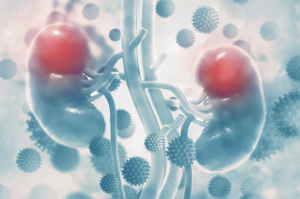IgA Nephropathy, also known as Berger’s disease, presents a puzzling renal disorder primarily affecting the younger demographic. This condition involves the deposition of immunoglobulin A (IgA) antibodies in the glomeruli within the kidneys. Such accumulation leads to inflammation and, if left untreated, can result in long-term kidney damage, potentially progressing to chronic kidney disease (CKD) or even end-stage renal disease (ESRD). The question of why young people are particularly susceptible to this condition is multifaceted, encompassing genetic predispositions, immune system responses, environmental factors, and lifestyle influences.

Firstly, the genetic component of IgA Nephropathy cannot be understated. Research indicates a hereditary pattern in the occurrence of this disease, suggesting that certain genetic markers are associated with an increased risk of developing IgA Nephropathy. Families with a history of this condition are more likely to have members who will suffer from it, particularly affecting individuals in their youth. Genetic predispositions impact how the immune system responds to infections, potentially leading to the abnormal production or processing of IgA antibodies. This genetic linkage underscores the necessity for early genetic screening and monitoring for families with a history of IgA Nephropathy.
The immune system’s role in the onset of IgA Nephropathy is crucial, especially considering the age demographic it affects. Young people often have more reactive immune systems, which are in a state of constant development and adaptation. Their immune systems, while proficient in combating pathogens, may also inadvertently contribute to the excessive production of IgA antibodies. Such an overactive immune response can trigger the deposition of these antibodies in the kidneys, leading to inflammation and damage. Furthermore, young individuals are more exposed to infectious agents, such as viruses and bacteria, which can stimulate the immune system to produce antibodies, including IgA.
Environmental factors and lifestyle choices also play a significant role in the prevalence of IgA Nephropathy among young people. Exposure to certain environmental toxins, dietary habits, and even stress levels can influence the risk and severity of this condition. Modern diets, rich in processed foods and low in nutrients, may contribute to systemic inflammation and an overactive immune response, thereby increasing the risk of IgA deposition in the kidneys. Moreover, the use of non-steroidal anti-inflammatory drugs (NSAIDs) for common ailments, prevalent among young individuals, can exacerbate kidney damage in those with IgA Nephropathy.
The diagnosis and treatment of IgA Nephropathy in young people pose their own set of challenges. Symptoms such as hematuria (blood in urine), proteinuria (protein in urine), and hypertension (high blood pressure) may be overlooked or attributed to less serious conditions. Early detection through routine screenings for those at risk is critical for effective management and treatment. Current treatments focus on controlling symptoms, slowing disease progression, and maintaining kidney function. This includes the use of medications like angiotensin-converting enzyme (ACE) inhibitors or angiotensin II receptor blockers (ARBs) to manage blood pressure and reduce proteinuria, alongside corticosteroids to decrease inflammation.
The emotional and psychological impact of IgA Nephropathy on young individuals and their families cannot be ignored. Being diagnosed with a chronic condition at a young age can lead to feelings of isolation, anxiety, and depression. Support groups, counseling, and education about the disease are essential components of comprehensive care. Encouraging a healthy lifestyle, including regular exercise, a balanced diet, and avoiding NSAIDs, can also mitigate some of the risks associated with IgA Nephropathy.
Looking to the future, ongoing research into the genetic markers and immune system mechanisms underlying IgA Nephropathy promises to unveil new therapeutic targets and treatment strategies. Advances in genetic testing may allow for earlier detection and personalized treatment plans, potentially improving outcomes for young individuals afflicted with this condition. Additionally, understanding the environmental and lifestyle factors that contribute to the disease’s development could lead to public health strategies aimed at prevention and early intervention.
In conclusion, the propensity of young people to develop IgA Nephropathy is a complex interplay of genetic, immunological, environmental, and lifestyle factors. While this condition poses significant challenges, advances in research, early detection, and treatment strategies offer hope for improved management and outcomes. Emphasizing preventive measures, supporting research efforts, and providing comprehensive care for those affected are crucial steps in confronting IgA Nephropathy among the youth. As understanding of this disease evolves, so too will the ability to effectively combat its impact on young individuals, paving the way for a future where IgA Nephropathy can be managed more effectively or perhaps even prevented.

